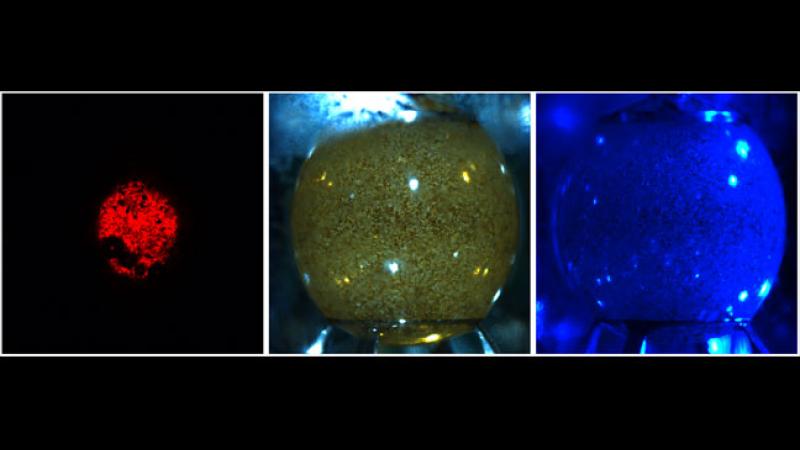New NSF grant supports ongoing research into proteins
July 17, 2023

Rensselaer Polytechnic Institute (RPI) researchers Amir Hirsa, professor of mechanical, aerospace, and nuclear engineering, and Patrick Underhill, professor of chemical and biological engineering, have received a new three-year grant from the National Science Foundation (NSF) for $452,847 to study the physics of protein solutions using the ring-sheared drop module aboard the International Space Station. The grant starts on August 1, almost 10 years from the start of the ongoing NASA grant that initiated this technology.
The ring-sheared drop concept requires a microgravity environment, like the one found on orbit, where surface tension alone can hold a volume of liquid together. The team was looking for a way to study fluid dynamics without interference from the solid walls of a container, which would typically be necessary to hold a fluid being studied on Earth.
Proteins are large, flexible macromolecules that perform a vast range of functions within living organisms. Their functions span from copying genetic material to providing structural integrity to cells and organisms. Because of their size, flexibility, and biochemistry, proteins can undergo structural changes that dictate their function, or sometimes cause disease.
The ability to understand and predict how the conditions that proteins experience affect their structure and conformation, and in turn their functioning in solution, is a holy grail in science, according to Hirsa. This work will be used for the development of predictive models for both fundamental science and industry, including development of first-principle models and manufacturing of pharmaceuticals.
The purpose of the new grant is to gain deeper scientific understanding of protein association, aggregation, and gelation in systems with high protein concentration in the presence of free surfaces.